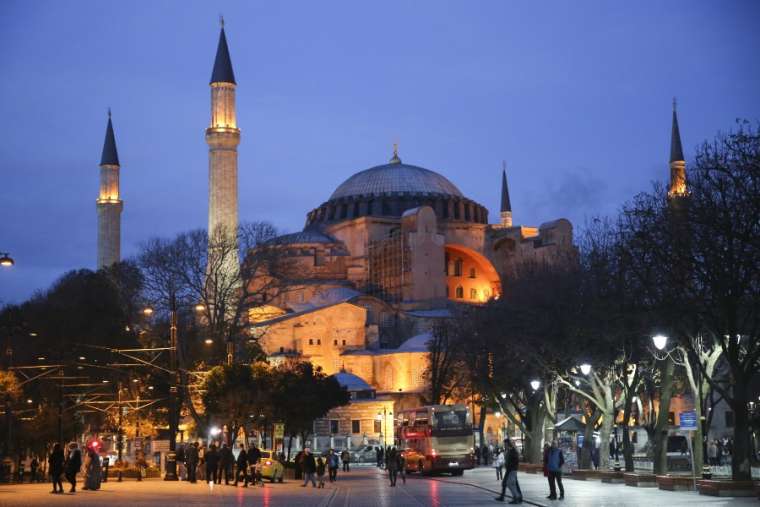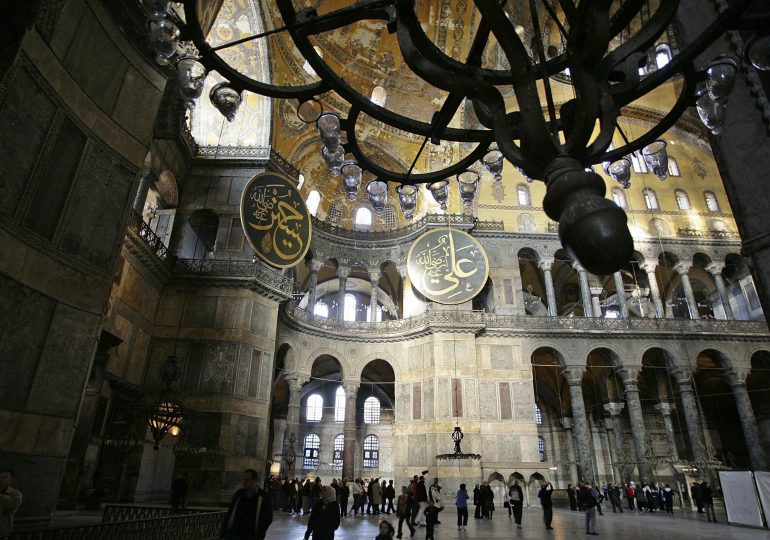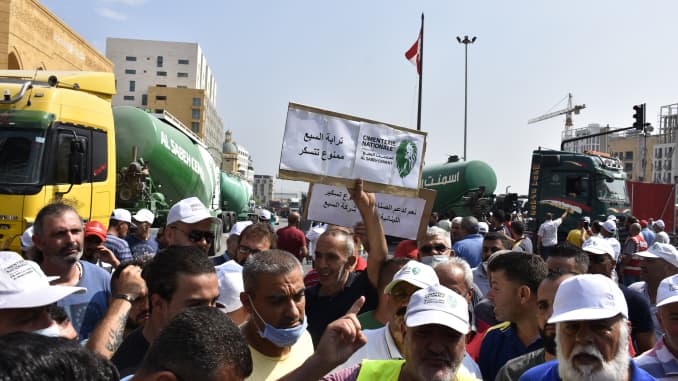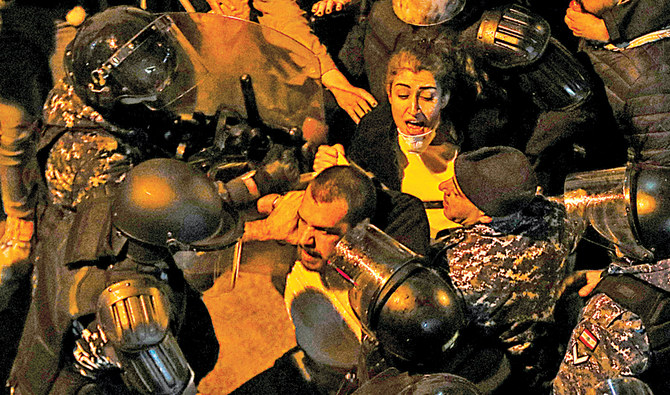BEIRUT (Reuters) by Tom Perry - Former Nissan Motor chairman Carlos Ghosn is helping everyone who stood by him, he said in an interview broadcast on Saturday, though he declined to comment on cases of people accused of helping him flee to Lebanon from Japan. Ghosn, the ex-chairman of an automaking alliance of Renault SA , Nissan Motor Co and Mitsubishi Motors Corp was arrested in Japan in late 2018 on charges of underreporting his salary and using company funds for personal purpose - charges he denies. In late December, he made a dramatic escape from house arrest in Japan, where he was awaiting trial, and fled to Beirut, his childhood home.
Japan has asked the United States to extradite U.S. Army Special Forces veteran Michael Taylor and his son Peter Taylor, who are accused of helping Ghosn flee and were arrested in May. Asked in an interview with Al Arabiya TV if he was trying to help the Taylors and others involved in his escape, Ghosn said: "You are talking about specific people, and I will not comment on those people who you are singling out. "What I'm saying is that I am helping everyone who helped me; I'm helping them with my means, with my thinking, and in any way I can," he said. "I am not talking about those people you mentioned specifically," he said, adding that he was talking about people who helped him "in general". Ghosn has refused to discuss details of his escape from Japan, saying it would put in danger those who helped him.


by catholicherald.co.uk -- Hannah Brockhaus/CNA -- A Turkish court has paved the way for the former Byzantine cathedral of Hagia Sophia in Istanbul to be turned back into a mosque. Turkey’s highest administrative court ruled July 2 to revoke the 80-year-old decree that declared the sixth-century building a museum. The ruling was announced July 10. Turkey’s President Recep Tayyip Erdoğan is expected to make the final decision on whether Hagia Sophia will revert to a mosque — a cause he has loudly championed. Christian leaders in the Middle East and U.S. have spoken out in favor of maintaining the status quo at the historic site.
Eastern Orthodox Ecumenical Patriarch Bartholomew of Constantinople said Turkish people have the responsibility “to make the universality of this wonderful monument shine,” given that as a museum it is “the symbolic place of encounter, dialogue, solidarity and mutual understanding between Christianity and Islam.” Patriarch Bartholomew addressed the place of Hagia Sophia in his homily during Divine Liturgy at the Church of the Holy Apostles in Istanbul June 30, Fides news agency reports. Hagia Sophia belongs “belongs not only to those who own it at the moment, but to all humanity,” he said. The Eastern Orthodox Christian leader warned that converting it to a mosque “will push millions of Christians around the world against Islam.” “A threat against Hagia Sophia is a threat to all of Christian civilization, meaning our spirituality and history,” Patriarch Kirill of Moscow said on July 6. He said the former basilica of Constantinople is “one of the biggest monuments of Christian civilization” “What could happen to Hagia Sophia will cause deep pain among the Russian people,” said the Russian Orthodox patriarch.

By Emma Graham -- CNBC.com -- Lebanon is in the throes of multiple crises, as Prime Minister Hassan Diab approaches five months in office. The small Mediterranean country of nearly 7 million people is in the midst of an economic meltdown, with fuel shortages and power cuts adding to the hardship faced by many nationwide. The country’s unemployment rate stood above 30% at the end of May, while annual food inflation has skyrocketed to around 190%. “The only card that is remaining is the street,” Henri Chaoul, former advisor to Lebanon’s minister of finance told CNBC’s Hadley Gamble on Thursday.
Speaking to CNBC about recent street protests, Chaoul said he does not know what the trigger is going to be, adding that the political setup in Lebanon cannot evolve. “It needs a revolution, not an evolution, to move to the next stage in our political discourse.” Power cuts across the capital city of Beirut have exceeded 20 hours a day in some areas. The darkness, extreme even for Lebanon, is caused by fuel shortages and lawmakers have warned they could last another two weeks. Lebanon’s electricity shortage has caused the main hospital in Beirut to shut down operating rooms and delay surgeries. “Clouds are gathering and we might be heading into a storm,” Firass Abiad, director general of the Rafic Hariri University Hospital, said via Twitter on Friday.

by AFP --- BEIRUT: Talks between crisis-hit Lebanon and the International Monetary Fund are deadlocked, and leaders reluctant to enact reforms. Without a vital multibillion-dollar bailout, is Lebanon headed for “hell“? For months, the Mediterranean country has grappled with its worst economic crisis since the 1975-1990 civil war. Tens of thousands have lost their jobs or part of their salaries, while a crippling dollar shortage has sparked rapid inflation. After the country for the first time defaulted on its sovereign debt in March, the government pledged reforms and in May started talks with the IMF toward unlocking billions of dollars in aid. But 16 meetings later, the negotiations are stalling.
“The IMF has left the negotiating table and talks have stopped,” said a member of the Lebanese negotiating team speaking on condition of anonymity. Another Lebanese source familiar with the negotiations said IMF representatives have “not sensed serious commitment from the Lebanese delegation” toward reform. “Every faction is vying for its own personal interests while the country burns,” they said. Deadlock is common in multi-confessional Lebanon, where politicians have for decades been accused of cronyism, conflict of interest and corruption. As Lebanon seeks help from the IMF, arguments are mounting over the scale of total financial losses for the state, central bank and commercial banks. The government estimated losses at around 241 trillion Lebanese pounds, which amounts to about $69 billion at an exchange rate of 3,500 pounds to the greenback. But a parliamentary committee quoted much lower figures using the old currency peg of 1,507 pounds to the dollar. The IMF considers the government’s figures to be more likely. The discrepancy in the figures shows the great power and influence of a “lobby ready to see Lebanon burn rather than expose what they did to it,” the Lebanese negotiator said.
Khazen History


Historical Feature:
Churches and Monasteries of the Khazen family

St. Anthony of Padua Church in Ballouneh
Mar Abda Church in Bakaatit Kanaan
Saint Michael Church in Bkaatouta
Saint Therese Church in Qolayaat
Saint Simeon Stylites (مار سمعان العامودي) Church In Ajaltoun
Virgin Mary Church (سيدة المعونات) in Sheilé
Assumption of Mary Church in Ballouneh
1 - The sword of the Maronite Prince
2 - LES KHAZEN CONSULS DE FRANCE
3 - LES MARONITES & LES KHAZEN
4 - LES MAAN & LES KHAZEN
5 - ORIGINE DE LA FAMILLE
Population Movements to Keserwan - The Khazens and The Maans
ما جاء عن الثورة في المقاطعة الكسروانية
ثورة أهالي كسروان على المشايخ الخوازنة وأسبابها
Origins of the "Prince of Maronite" Title
Growing diversity: the Khazin sheiks and the clergy in the first decades of the 18th century
Historical Members:
Barbar Beik El Khazen [English]
Patriach Toubia Kaiss El Khazen(Biography & Life Part1 Part2) (Arabic)
Patriach Youssef Dargham El Khazen (Cont'd)
Cheikh Bishara Jafal El Khazen
Patriarch Youssef Raji El Khazen
The Martyrs Cheikh Philippe & Cheikh Farid El Khazen
Cheikh Nawfal El Khazen (Consul De France)
Cheikh Hossun El Khazen (Consul De France)
Cheikh Abou-Nawfal El Khazen (Consul De France)
Cheikh Francis Abee Nader & his son Yousef
Cheikh Abou-Kanso El Khazen (Consul De France)
Cheikh Abou Nader El Khazen
Cheikh Chafic El Khazen
Cheikh Keserwan El Khazen
Cheikh Serhal El Khazen [English]
Cheikh Rafiq El Khazen [English]
Cheikh Hanna El Khazen
Cheikha Arzi El Khazen
Marie El Khazen
